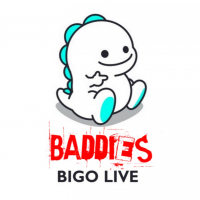Personal data security for streamers
Modern streaming is not only entertainment and a way to earn money, but also an activity associated with a high degree of responsibility for personal data
Millions of viewers follow streams on Twitch, YouTube, Kick and other platforms, which means that a streamer’s personal information becomes a potential target for hackers, scammers, and cybercriminals. In this article, we will take a closer look at how to protect personal data, what threats exist, and what measures can help streamers run their broadcasts safely.
Why personal data security is important for a streamer
A streamer not only shows a game or content but also communicates with the audience, participates in donations, receives gifts, and uses payment systems. Any leakage of personal information can lead to serious consequences:
- Financial risks. Attackers can gain access to bank cards, PayPal accounts, or other payment systems.
- Privacy violation. Personal addresses, phone numbers, or family data can become targets for trolls and stalkers.
- Reputational risks. Leakage of subscriber or partner information can undermine audience trust.
- Loss of accounts. Hacking Twitch, YouTube, or Kick may result in channel blocking and loss of income.
For a streamer, data protection is not just advice but a necessity for safety and career growth.
Main threats to a streamer’s personal data
- Phishing and fraud. Attackers send fake emails or messages with links that require entering a login and password.
- Account hacking. Using weak and repeated passwords makes accounts vulnerable.
- Leaks through social networks. Streamers often manage multiple accounts, and open information about personal life can be used against them.
- Tracking and doxxing. Publishing personal data, including home addresses, phone numbers, or locations, can pose safety risks.
- Leaks through donations and payment systems. Some streamers do not protect donor data and their own financial tools.
How a streamer can protect personal data
Protecting personal information requires a comprehensive approach and discipline. Below are the main security measures:
1. Strong passwords and two-factor authentication
Use unique and complex passwords for all accounts. Never reuse passwords on different platforms. Two-factor authentication (2FA) significantly reduces the risk of hacking.
2. Securing email and payment systems
Email is the key to a streamer’s accounts. Use a separate mailbox for platforms and donations. Enable 2FA for PayPal, bank cards, and crypto wallets.
3. Minimizing personal information in public spaces
Do not post your home address, phone number, or real name in profiles, chats, or social networks. Use nicknames and virtual contacts for audience interaction.
4. Device security
Antivirus software, VPNs, and regular system updates protect computers and mobile devices from malware and hacks. Do not connect to suspicious Wi-Fi networks or use public computers to log in to accounts.
5. Controlling donations and integrations
Use trusted services for donations and platform integrations. Never publish donor payment information publicly.
6. Regular backups and account recovery
Keep backups of content, settings, and contact information. Set up account recovery via email and phone to minimize the consequences of hacking.
7. Safe interaction with the audience
Filter the chat, use moderators and chatbots to prevent the spread of personal information live. Explain the communication rules to viewers and warn against unwanted information.
Mistakes to avoid
- Publishing personal data on social networks or in chats.
- Using simple passwords or identical logins across platforms.
- Ignoring device updates and security.
- Connecting unverified applications and third-party services to streamer accounts.
Conclusion
Personal data security for a streamer is the foundation of a successful and long-term career. Proper management of passwords, payment systems, social networks, and chats helps minimize the risks of hacking and information leaks. Streamers should regularly check their accounts, use two-factor authentication, secure devices, and minimize personal data disclosure.
Remember that your audience values not only entertainment but also your responsibility. Personal data security is not just self-protection but also the trust of your audience, which directly affects success and income in streaming.
Modern streaming is not only entertainment and a way to earn money, but also an activity associated with a high degree of responsibility for personal data
Millions of viewers follow streams on Twitch, YouTube, Kick and other platforms, which means that a streamer’s personal information becomes a potential target for hackers, scammers, and cybercriminals. In this article, we will take a closer look at how to protect personal data, what threats exist, and what measures can help streamers run their broadcasts safely.
Why personal data security is important for a streamer
A streamer not only shows a game or content but also communicates with the audience, participates in donations, receives gifts, and uses payment systems. Any leakage of personal information can lead to serious consequences:
- Financial risks. Attackers can gain access to bank cards, PayPal accounts, or other payment systems.
- Privacy violation. Personal addresses, phone numbers, or family data can become targets for trolls and stalkers.
- Reputational risks. Leakage of subscriber or partner information can undermine audience trust.
- Loss of accounts. Hacking Twitch, YouTube, or Kick may result in channel blocking and loss of income.
For a streamer, data protection is not just advice but a necessity for safety and career growth.
Main threats to a streamer’s personal data
- Phishing and fraud. Attackers send fake emails or messages with links that require entering a login and password.
- Account hacking. Using weak and repeated passwords makes accounts vulnerable.
- Leaks through social networks. Streamers often manage multiple accounts, and open information about personal life can be used against them.
- Tracking and doxxing. Publishing personal data, including home addresses, phone numbers, or locations, can pose safety risks.
- Leaks through donations and payment systems. Some streamers do not protect donor data and their own financial tools.
How a streamer can protect personal data
Protecting personal information requires a comprehensive approach and discipline. Below are the main security measures:
1. Strong passwords and two-factor authentication
Use unique and complex passwords for all accounts. Never reuse passwords on different platforms. Two-factor authentication (2FA) significantly reduces the risk of hacking.
2. Securing email and payment systems
Email is the key to a streamer’s accounts. Use a separate mailbox for platforms and donations. Enable 2FA for PayPal, bank cards, and crypto wallets.
3. Minimizing personal information in public spaces
Do not post your home address, phone number, or real name in profiles, chats, or social networks. Use nicknames and virtual contacts for audience interaction.
4. Device security
Antivirus software, VPNs, and regular system updates protect computers and mobile devices from malware and hacks. Do not connect to suspicious Wi-Fi networks or use public computers to log in to accounts.
5. Controlling donations and integrations
Use trusted services for donations and platform integrations. Never publish donor payment information publicly.
6. Regular backups and account recovery
Keep backups of content, settings, and contact information. Set up account recovery via email and phone to minimize the consequences of hacking.
7. Safe interaction with the audience
Filter the chat, use moderators and chatbots to prevent the spread of personal information live. Explain the communication rules to viewers and warn against unwanted information.
Mistakes to avoid
- Publishing personal data on social networks or in chats.
- Using simple passwords or identical logins across platforms.
- Ignoring device updates and security.
- Connecting unverified applications and third-party services to streamer accounts.
Conclusion
Personal data security for a streamer is the foundation of a successful and long-term career. Proper management of passwords, payment systems, social networks, and chats helps minimize the risks of hacking and information leaks. Streamers should regularly check their accounts, use two-factor authentication, secure devices, and minimize personal data disclosure.
Remember that your audience values not only entertainment but also your responsibility. Personal data security is not just self-protection but also the trust of your audience, which directly affects success and income in streaming.
Our Services for Streamers
Our Services for Content Creators











